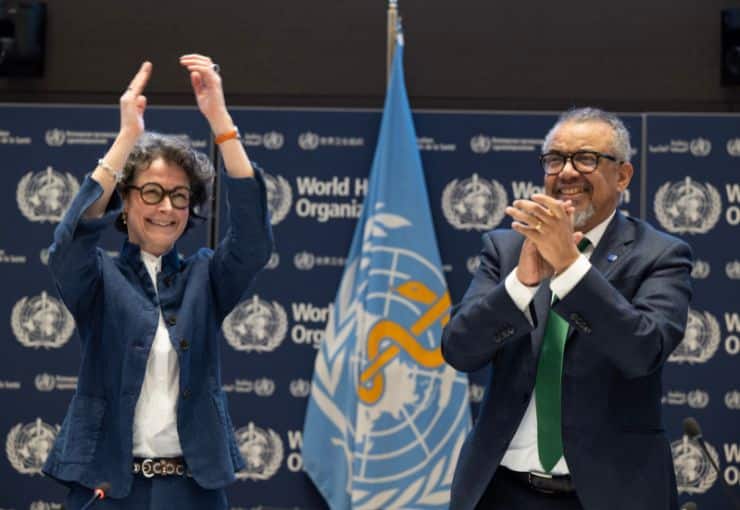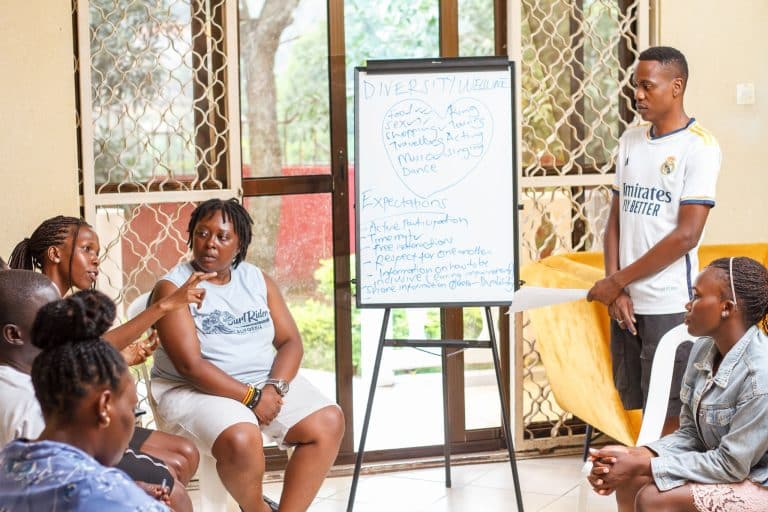The BioNTech mRNA vaccine manufacturing facility in Rwanda contributes to greater access to mRNA vaccines in Africa in the short-term, but it lacks plans and commitments to enhance sovereignty and self-reliance of the continent in access to health products in the long-term. This is the main conclusion from a case study of the BioNTech Africa facility, conducted by four public health NGOs from Africa and Europe. Public funders of future initiatives for regional production must learn from this by attaching conditions to their financing that ensure local ownership of the development and manufacturing of health products.
Strengthening regional production
The Covid-19 pandemic painfully demonstrated how much Africa depends on the Global North for access to life-saving medicines and vaccines. In response to this disparity and the suffering it causes, both public and private institutions started setting up initiatives in the Global South to strengthen regional production of vaccines and other health products. One of these is the initiative of the German pharmaceutical company BioNTech to set up a facility in Rwanda.
Public health organizations Afya na Haki (Uganda), Great Lakes Initiative for Human Rights and Development (GLIHD, Rwanda), Health Development Initiative (HDI, Rwanda) and Wemos (the Netherlands) conducted a case study of the BioNTech Africa facility. The main objective was to analyze to what extent and how a facility of a company from the Global North can contribute to greater independence of the Global South when it comes to access to health products. Based on the lessons learnt from this initiative, the organizations have drawn up recommendations for other initiatives to successfully set up sustainable regional production.
“The purpose of strengthening regional production should be to contribute to health equity and countries’ sovereignty and self-reliance in access to health products. Therefore, it is vital to ask ourselves whether and how satellite production sites of pharmaceutical companies from the Global North can achieve that”, says Antonio Perrelli, researcher at Wemos.
Lack of policies and strategies
The case study report shows that the manufacturing facility of BioNTech in Rwanda – in the form of modular factories in shipping containers, so-called BioNTainers – constitutes a concrete response to the lack of production of vaccines in Africa. In the short-term, the facility could increase the production of and access to mRNA Covid-19 vaccines in Rwanda, East Africa and the continent. Furthermore, it could strengthen the regulatory system in Rwanda and support the production of Active Pharmaceutical Ingredients (APIs) in Africa.
Whether the initiative can also enhance the sovereignty and self-reliance of the country, region and continent in the long-term when it comes to access to health products, remains doubtful. It currently lacks policies and strategies – or public information about these policies and strategies – to ensure that the region can fully develop, produce and market mRNA vaccines and other health products for and by themselves in the future, based on the local, regional and continental epidemiological needs. For example, it is unknown whether BioNTech will transfer the technologies and know-how required for production to the Rwandan government and/or local manufacturers.
Conditions to public funding
According to the researchers, more needs to be done to ensure that initiatives for regional production sufficiently contribute to health equity and countries’ sovereignty and self-reliance in Africa. For example, governments, multilateral organizations and global health funds should attach conditions to public funding of these initiatives. An essential condition would be that Northern-based pharmaceutical companies should transfer the required technology and know-how to African manufacturers.




